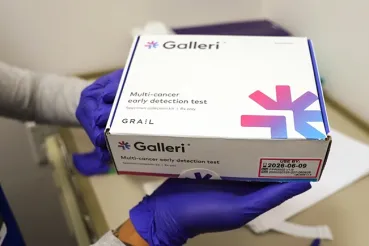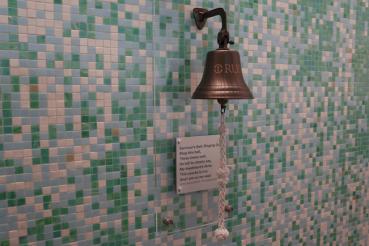What do sweet orange, lavender, peppermint and spearmint have in common? They all smell good, and now a study at Rush Copley Medical Center suggests they can help patients manage symptoms and side effects of cancer treatment.
As a holistic nurse working in radiation oncology at Rush Copley, Audrey Stoppel, BSN, was aware of the benefits of aromatherapy. She and administrative intern Alexa Cohen explored the use of aromatherapy to help comfort patients undergoing cancer treatment. With funding from Rush Copley Foundation, they piloted a program to help patients manage their symptoms and make the time spent in treatment more comfortable and comforting.
The results? Aromatherapy made the treatment experience more pleasant for patients, Stoppel says. “It helped distract them,” she explains. “It was a cost-effective way to manage their symptoms.”
Easing nausea and anxiety
For the pilot program, oncology patients were offered aromatherapy before, during or after their chemotherapy, radiation or infusions. Two types of essential oil products were used to help control feelings of nausea or emotional distress. A mixture of peppermint, lavender, ginger and spearmint essential oils was for feelings of nausea while a combination of sweet orange, ylang ylang, lavender and bergamot, was used to assist with emotional distress and anxiety.
The patient was instructed to place the product just below the nose and take slow, deep breaths until the discomfort was alleviated. Because the tabs lasted two weeks, patients controlled how they used them. Those undergoing daily radiation treatment could use them every day for two weeks while other patients could take them home to use following treatment.
Positive results
Over the yearlong study, 88% of patients reported positive results with feelings of relaxation and calm after aromatherapy. Many said it helped nausea. Patients who took it home said they slept better at night.
“I really like using aromatherapy during treatment,” one patient said. “It helps a lot.” Some patients reported that aromatherapy helped their feelings of anxiety or nausea so much that they did not need to take medication for those symptoms.
The researchers concluded that aromatherapy can be used as a tool to enhance the patient experience.
Because of the positive results, Rush Copley Foundation will continue funding the program at the RUSH MD Anderson Cancer Center at Rush Copley and, in the next year, expand the program to Waterford Place Cancer Resource Center as one of the free services provided there. In addition, Stoppel will provide quarterly talks at Waterford Place to educate patients about using aromatherapy to manage side effects.




